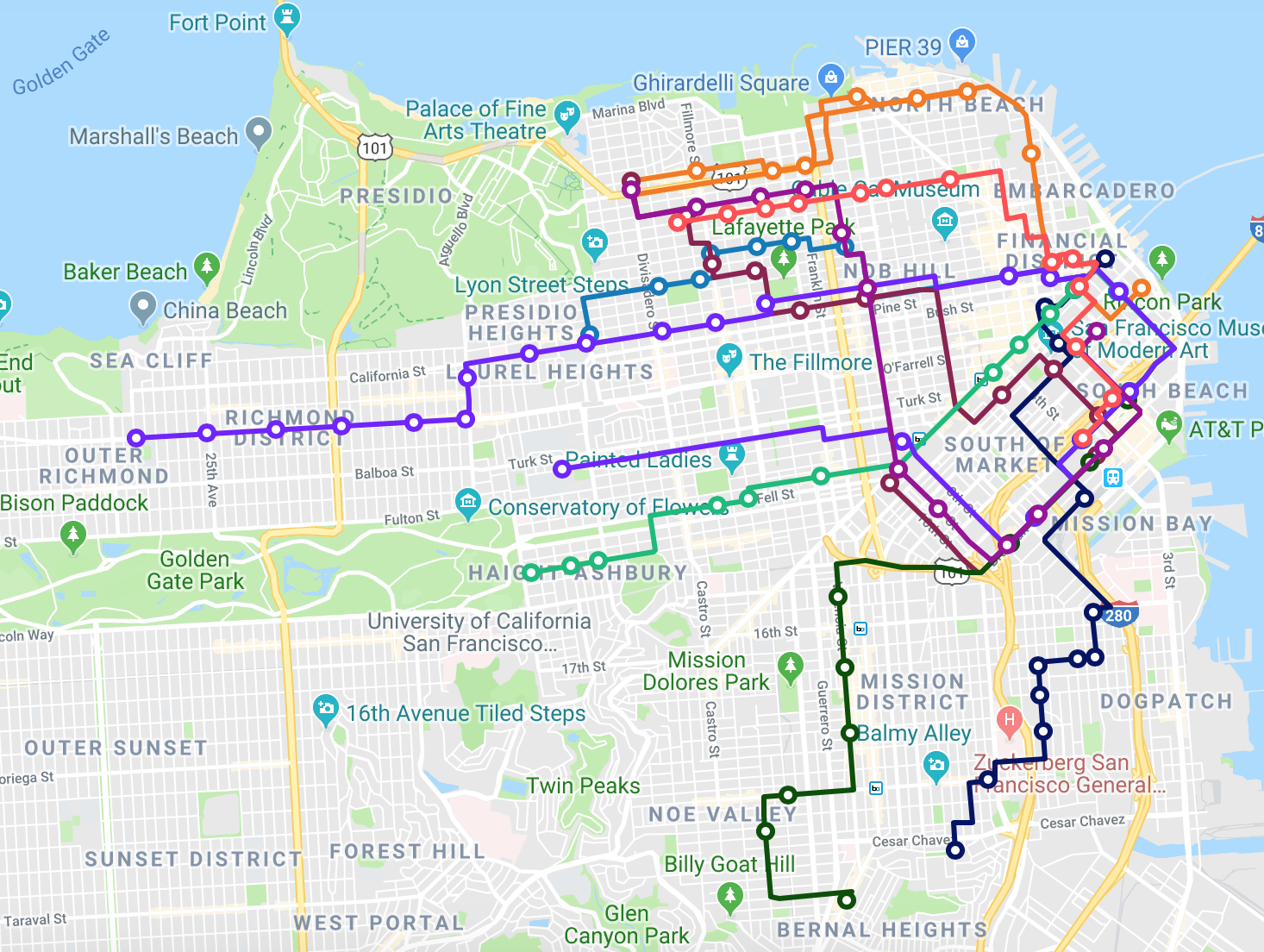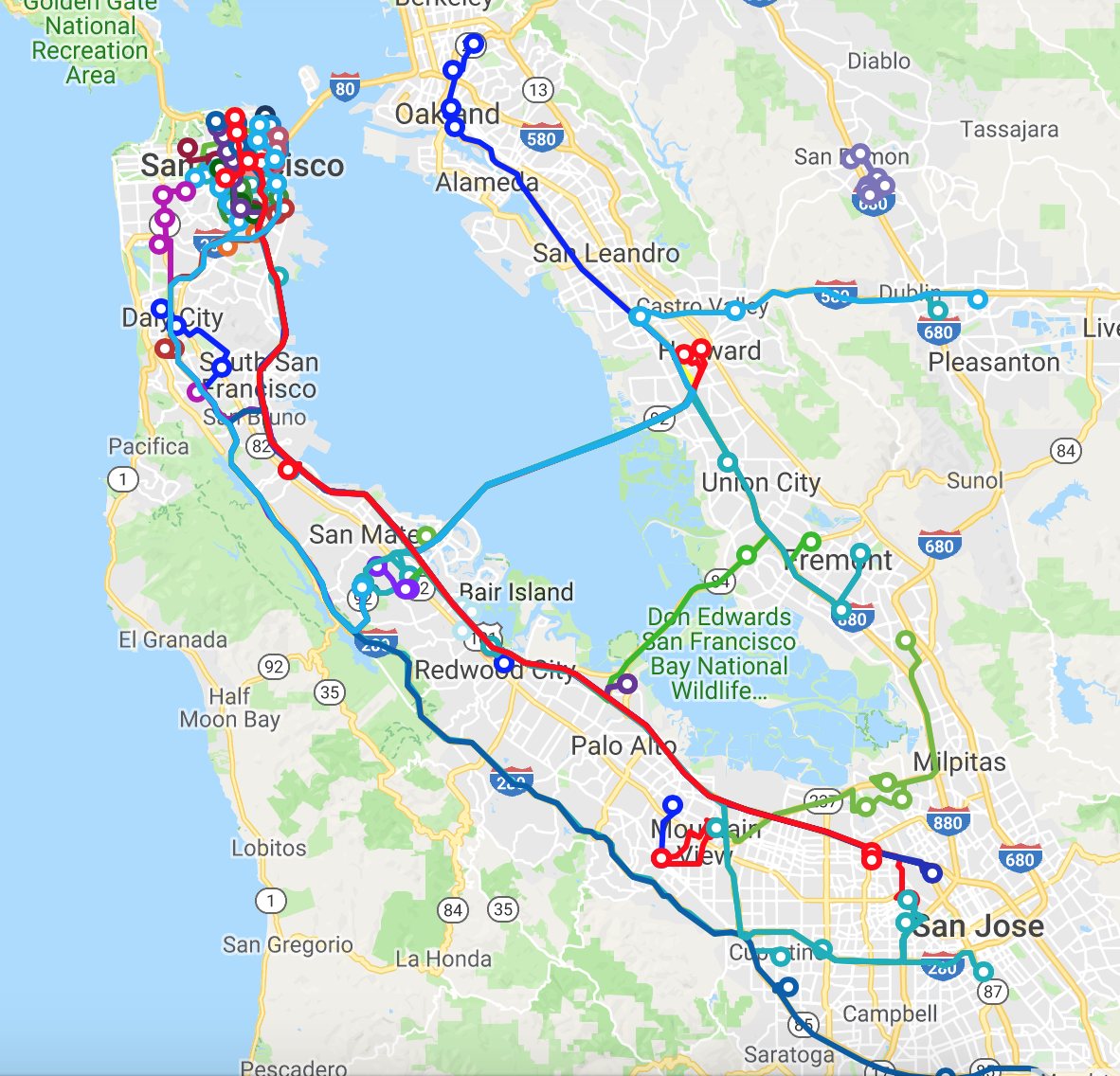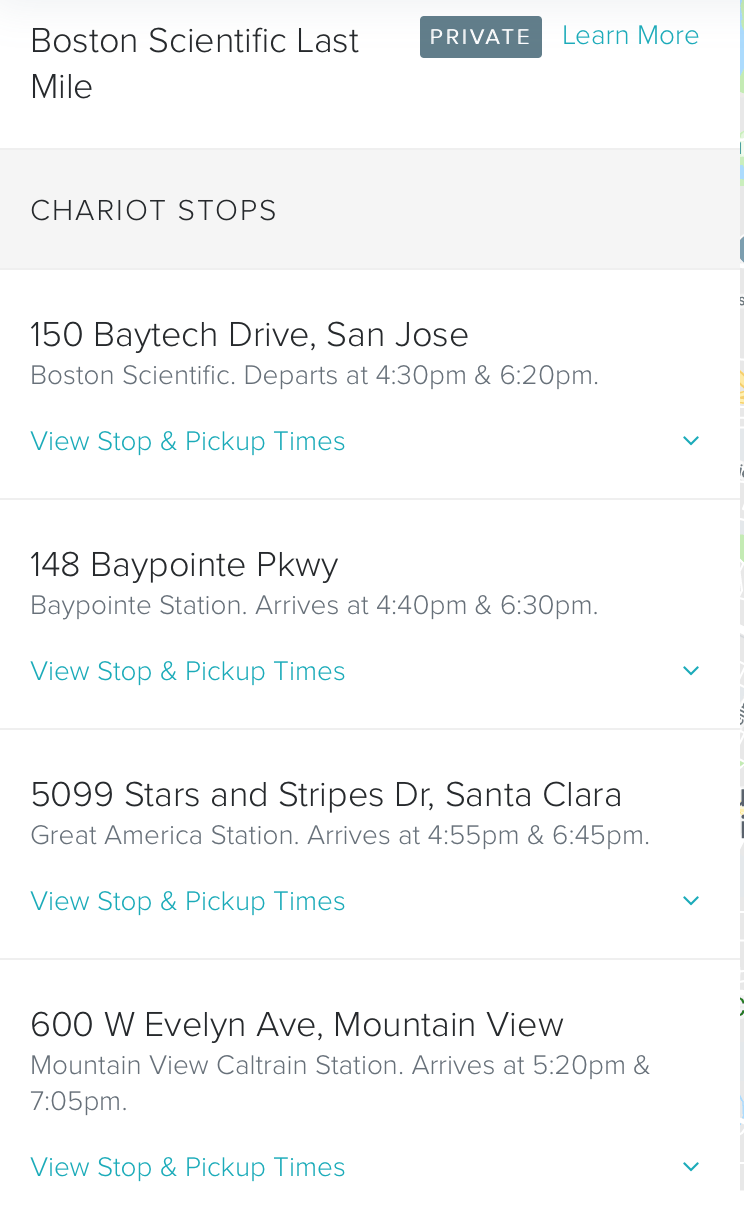A staple in every town and city around the world, the cheap yet reliable bus route has been allowing people to get from A to B with ease. In the last year or two though it’s been going through something of a reinvention all thanks to the smartphones in our pockets.
If you want to get around a big city, let’s say London, there’s now a swathe of different options that are very competitive with the old school public transport like buses and tubes. There’s now at least five mobility companies that I’m aware of in London operating public transport like services. Let’s explore them.
Uber
Probably the one everyone knows about is Uber, specifically Uber Pool and in some US cities Uber Pool Express. Uber Pool links up riders that are going to roughly along the same route. It’s usually 10-20% cheaper than a regular Uber but can take a bit longer as you’re diverted to pick-up and drop-off other passengers. I’ve found, particularly in London, that it’s not a very popular service.
In some US cities they’ve been trialling a new service called ‘Express Pool’ which makes riders walk a short distance to a more appropriate pick-up point which may be with other riders. A bit like a bus stop?
Gett
Gett is a company extremely similar to Uber but it’s almost exclusively black cabs. One of their newer services is called ‘Gett Together’. It’s a service I’ve actually been using for a couple of months and it’s brilliant. During the morning and evening commute times Gett has black cabs operating fixed routes where people get picked up and dropped off anywhere along them for a fixed fare of £3. At the moment they have three routes running in London which go one way during the morning commute and in the reverse direction in the evenings. These routes typically link up the outer boroughs with Central London and the main transport hubs such as Waterloo, London Bridge and Clapham Junction.
I’ve used this service quite a bit as it runs directly past my flat and within a five minute walk of the office. It’s a brilliant service. The only minor annoyance is that London’s Black Cabs are so unbelievably uncomfortable. It’s also actually faster to cycle this route for me which I tend to do when the weather’s a bit nicer. I used Gett Together a lot over the winter and when it was snowing.
Chariot
Now this is an interesting one as it’s an offering directly from a major vehicle manufacturer - Ford. Ford actually acquired the early stage start-up in September 2016 just two years after it was founded. It’s quite new to London and operates four short routes which work in a similar way to Gett except that they only pick-up and drop-off at actual bus stops. It costs £2.40 for each journey or you can buy a weekly or monthly pass which could bring the cost down to £1.60 per journey. They’re also able to use the bus lanes in London which massively helps with avoiding congestion. The only issue I see with Chariot in a city like London is that public transport is really quite good so I hope they can make good use of data to fill in the public transport gaps.
One of their routes goes right past my flat but doesn’t go anywhere useful for me so I’m to use it. I see them driving past constantly and interestingly always look empty. In fact I don’t think I’ve ever seen one pickup or drop-off a passenger yet.
To get a real sense of the potential of Chariot it’s well worth taking a look at their San Fransisco Bay Area routes. One of the most interesting offerings is for Private routes which are put on by companies for their staff and visitors. In SF there’s some 55 private routes from companies like Amazon, GoPro, and Packard. Making it as easy as possible for employees to get to work without driving is really important in a modern city and putting on a train station to work private bus service is a great way of doing this. A good example of this is the Boston Scientific ‘Last Mile’ route which runs from their office and stops at all the major train stations.


I’m quite excited to see how Chariot develops.
ViaVan
This is another offering from a vehicle manufacturer, this time Mercedes Benz Vans. They’ve partnered with a company called Via which offers a mobility platform which essentially does the same thing as Uber Pool - it puts together riders who are going in the same direction. They direct riders to street corners which ViaVan calls ‘Virtual Bus Stops’ to avoid lengthy detours to pickup and drop-off passengers. The service started in London in early April and it’s first city was Amsterdam a short while before in March. It’s soon to start in Berlin. It’s not clear what the pricing is like for ViaVan but they have an introductory £3 per ride anywhere in Zone 1 and I’m guessing it’ll be quite competitive with Uber.
I think the nice thing ViaVan has to offer above the likes of Uber Pool is that they’re using nice Mercedes Benz people carriers which are far more comfortable than the old Prius that you’re likely to get with Uber.
Citymapper
Citymapper did something quite interesting. About a year ago the route finding company (their app is brilliant by the way) spotted a gap in London’s night bus route. They were able to see this as they have lots of data on where people are trying to get from and to and what transport options are available to them. The gap they spotted led them to trial a quite conventional bus route that ran from A to B and stopped at normal bus stops to pickup and drop-off passengers. It of course added a bit of technology to help them run more efficiently but overall it was just a normal bus. It turns out they found it quite hard to do anything innovative with a traditional bus service. They wrote a fantastic blog post about their difficulties which seem to mostly stem from outdated regulations. They eventually stopped running this service and developed something they’ve called ‘Smart Ride’.
Smart Ride seems quite similar to the other services I’ve written about here in that it groups riders going in the same direction and it (sort of) operates along routes dropping off and picking up passengers anywhere along it. The difference I can see though is that they operate a network of routes so you can get picked up and dropped off anywhere along one of the lines.
Citymapper Smart Ride Network
Citymapper say that this network can be responsive to differing demand levels, congestions and special events. They’re aiming this at somewhere between a taxi and a bus and using nice 6 seater people carriers (Mercedes Benz V-Class I believe). Rides are currently priced at £3.
I’m yet to use this service but it looks quite promising.
So that’s a super quick overview of some of the really interesting and promising new mobility services running in London that are (sort of) reinventing the bus route. I think the future of these types of services is very bright. Certainly having used Gett Together quite a bit I can say that they’re always quite busy and loved by both riders and drivers it seems.


